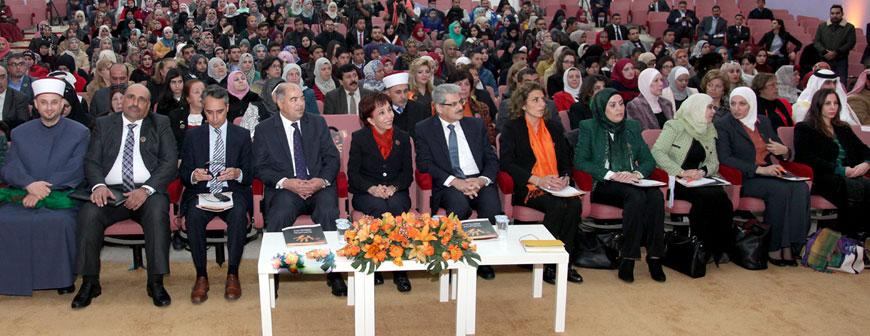You are here
Honour crimes anti-Islamic — fatwa
By Rana Husseini - Dec 01,2016 - Last updated at Dec 01,2016
AMMAN — The Iftaa Department on Thursday issued a fatwa prohibiting the murder of women in the name of family honour.
“We received an inquiry from a citizen about Islam’s position regarding the murder of women in so-called honour crimes and we issued a fatwa in that regard,” said the Mufti at the Iftaa Department and Director of the Public Relations and Cooperation Hassan Abu Arqoub.
The cleric told The Jordan Times that the inquiry coincided with Jordan’s marking of the 16 Days of Activism against Gender-Based Violence in Jordan and “this was a good timing I believe because we are talking here about the right of life”.
The fatwa, according to Abu Arqoub stipulates that it is strictly against Sharia for anyone to kill his female relative claiming family honour.
“Anyone who commits such a crime should be held accountable and should not get a reduced sentence if the victim was a relative or if he/she base the murder on suspicions,” the mufti said.
Abu Arqoub stressed that no one is entitled to take the law into their hand, adding that the judiciary is the only authority that is entitled to prosecute people and issue verdicts.
“Islam cherishes life and forbids the killing of any human being without a legal justification,” he stressed.
The mufti added that in cases of adultery, “Islam’s position is clear. There has to be four witnesses who must all testify to the same occurrence in details and if they do not, then they will be punished [for perjury].”
“We never had any incident in Islam whereby four witnesses came forward to testify to an adultery case between married [or at least one married] people because it is almost impossible,” he explained.
The other method of proving adultery, according to the fatwa that was distributed to the press, is for the individuals who commit adultery to confess.
When they do, according to the fatwa, they should be ensured a fair trial “because this is their basic human right and it is up to the authorities and judiciary, and not any individual or other party, to decide the punishment, even if they were the closest people to them”.
Globally, around 5,000 women are killed for reasons related to family honour every year, according to international studies, including 20 in Jordan.
The issue of so-called honour murders has witnessed a huge debate in Jordan over the past 15 years with activists demanding better protection methods to spare the lives of women, including amending the laws that offer leniency to killers and providing centres that would protect and serve potential victims of honour murders.
Perpetrators of this category of murder used to receive between three months to two years in prison by the Criminal Court for killing their female relatives in the name of family honour.
But in July 2009, a specialised tribunal was established at the Criminal Court to handle such cases and the majority of perpetrators started receiving prison terms ranging from seven-and-a-half-years in prison to life imprisonment.
Sisterhood Is Global Institute welcomed the Iftaa Department’s fatwa on Thursday saying this should be viewed as a positive step towards further legal changes in the near future.
“We are hopeful that this step would push legislators to consider amending several articles that discriminates against women or offer leniency to their killers.”
Jordanian Women’s Union Director General Nadia Shamroukh also praised the religious edict, describing it as an important step.
“This is a long awaited and important step that religiously prohibits the killing in the name of family honour and reaffirms that the Islamic religion has nothing to do with such crimes,” Shamroukh told The Jordan Times.
The next step, according to Shamroukh, is for the government to take concrete action to protect women by issuing stiffer regulations as part of the Personal Status Law and the Penal Code.
“The government should work to amend laws in the Penal Code that still excuse some perpetrators of these murders, as well as amending some provisions in the Personal Status Law to better protect women,” Shamroukh stressed.
She added: “It is also time for the government to consider our demand to cancel the clause in the code that allows families to drop charges against perpetrators, which leads to reducing the sentence by half.”
Related Articles
MAFRAQ — With around 38 women killed in Jordan since the start of the year, activists on Wednesday called for legislative, societal and secu
AMMAN — The Iftaa Department on Wednesday issued a fatwa, classifying “misuses” of social media as “prohibited by Sharia and totally rejecte
AMMAN — The Iftaa Department on Tuesday ranked first in the Arab world and second internationally in issuing fatwas (religious edicts) for t

















